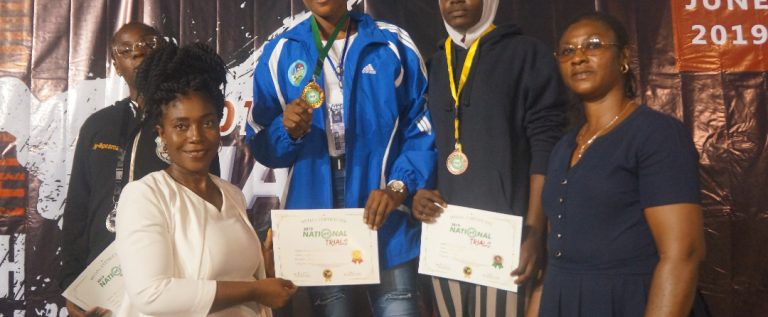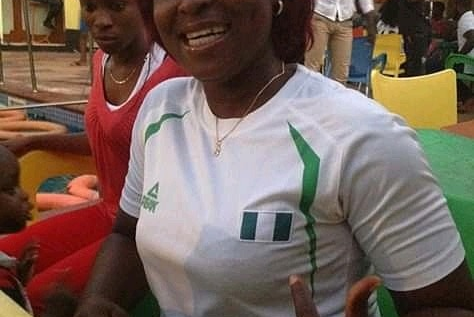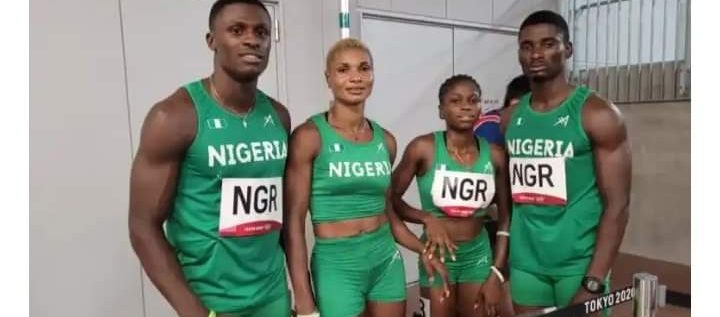The Nigeria Taekwondo Generational Change Before Our Eyes

1,149 total views, 3 views today
By Engr. Chika Chukwumerje, OLY
The Nigeria Taekwondo Generational Change Before Our Eyes
By Engr. Chika Chukwumerje, OLY
This past weekend entertained Abuja to the wonderfully organized event of the National Taekwondo Seniors Open Trials, in preparations for the Africa Games (formerly All Africa Games)
While others were looking with expectations at the winners that will emerge, I could not because I have long staked my reputation on the effectiveness of the current national ranking system that the Federation launched in 2017.
I believe that a well-designed National Ranking System, that is steadily given life by a steady stream of competitions, identifies and documents the best and most consistent performers over any given period, and accurately portrays a Nation’s best athletes in any sport that deploys such a system.
More importantly, it helps the future of a sport to immediately identify any new or emerging talents, because of the unique tracking nature of a ranking system.
The first part of my belief is not what interested me when I keenly watched the National Trials, because the empirical data gathered so far combined with effective forecasts, made me certain of who the majority of the eventual winners will be even before the national trials were begun.
You see, during the 2018 National Sports Festival, 12 of the 16 top ranked athletes at the time came away with Gold medals, which was in tandem with my public pre-event forecast at the time. Without any doubt whatsoever, I was confident that a similar or even better scenario will play out at the National Trials. In fact, the technical crew and I were so certain of this that when the Secretary-General asked us to submit a provisional list three weeks ago, we did not hesitate to send the list of the top ranked player in each weight category.
So, when 14 out of the 16 top ranked players emerged with Gold Medals at this weekend’s trials, it was ancient news for me that was long foreseen. The other two top ranked players that lost out in the finals to the second ranked players, only adds credence to the efficacy of the deployed national ranking system.
What interested me more what the second objective of the national ranking system, which was to track new and emerging talent. For this event, I already had test subjects in the form of the 2017 National Youth Team who I have been keenly tracking since the national youth camp and their subsequent international exposure at the African Youth Games in Algiers in 2017, where the ten-person team came away with four bronze medals.
Since that first exposure, they have steadily improved their performances at national competitive events and literally the entire team turned 18 years this year, and this would be their first major event as proper seniors. So, I was quite interested in how they will perform, which for me was a good performance indicator on if the “new” was on track to replace the “aging”.
To answer in one sentence, this was very much the case.
In this just concluded National Trials, eight of the former national youth team competed. Overall, they won One Gold, Five Silvers and One Bronze. Only one failed to medal in what was arguably a very tough competition, given the use of the innovative round-robin system, unique to Nigeria Taekwondo.
The persons were as follows: 1. Helen Okoko [Won GOLD in the female feather -57kg]: 2. Daniel Mfon Asuquo [won SILVER in the male bantam -63kg]: 3. Faith Chidinma Nwankwo [won SILVER in the female bantam -53kg]; 4. Bukola Jane Ogunnusi [won SILVER in the female light -67kg]: 5. Olapeju Adeteju Oyebanji [won SILVER in the female heavy +73kg]; 6. Daniel Inaju [won SILVER in the male fly -58kg]; 7. Chukwudi Prince Daniel [won Bronze in the male -74kg]. Phillip Osomade, who competed in the male -68kg but did not make it past the group stages.
To put it in perspective, all five silver medallists lost to the current senior national squad team members and the bronze medallist lost to the 2nd ranked player in the country.
While they were all brilliant, I must mention that I was very particularly thrilled with the transformation and development of Lagos State’s Olapeju Oyebanji. In 2007, she was quite lethargic, slow and lacking in confidence. In contrast, her performance at the national trials was brimming with confidence, very aggressive with much sharper movement.
Another performance that caught my attention was FCT’s Chukwudi Daniel who made history when he scored 50 points against his opponent, Abdurahmon Zakariyya, during the round-robin stage. It was the highest points score ever recorded in any NTF-sanctioned event since the Federation started using the electronic scoring systemic in 2012.
It was particularly impressive because the 6ft 2” Daniel, who is merely a blue-belter and only turned 18 three weeks ago, had not competed in any national event since the African Youth Games in 2017 and this was his first ever seniors’ event.
A look at the national ranking also gives one a glimpse of their progress so far, with NSCDC’s Helen Okoko leading the pack with a number one ranking, and the bulk of the former youth team in top 10 positions.
Helen Okoko [1]; Bukola Ogunnusi [2]; Olapeju Oyebanji [2]; Happiness Adirimo [3]; Chidinma Nwakwo [4]; Inaju Daniel [6]; Daniel Asuquo [7]; Ezekwe Kelechi [8]; Success Ugwu [9]; Chukwudi Daniel [15]; Phillip Osomade [15].
The heart of my philosophy with regards to grassroots development of any sport is contained in just three words – Discover, Train, Expose.
The cases of these athletes are good illustrations of this simple philosophy. The athletes were *discovered* in two batches at the 2016 National Youth Games and 2017 Nigeria Taekwondo Junior Championships. They were *trained* rigorously in an 8-week national camp, where we deliberately exposed them to all areas of taekwondo training – physical, mental, academic and psychological. They were then *exposed* to their first international at the 2017 African Youth Games.
I am without doubt that this was the catalytic combination needed to fire them up for the next decade, and a major reason for the strong emergence over the past year.
My worry now is that the TRAIN and EXPOSE pillars of this philosophy is not being executed, because of the lack of resources. These phases requires sustainable funding and access to other resources. Despite the continued empirical improvement of these young athletes, their current development is not fast enough because the resources are not available to the Federation or their regional clubs/ teams to make it so.
This is particularly frustrating for me, given that the knowledge to turn these young athletes into world-beaters with the next five years is available, only if the resources are made available. I am particularly sad that the continued lack of resources will ensure the nation will continue to miss out on undiscovered taekwondo talents. In the same breath, it would equally ensure that we lose out on discovered talents that cannot be subjected to consistent and quality training and exposure.
For those of them that make it to the National Camp for the 2019 All African Games, I will call upon my experiences as an 18 year old at the 2003 All African Games to project that the management of talent can guarantee the nation a decade’s worth of international medals.
My first AAG exposure in 2003 produced a bronze medal. In 2007, I won the Gold medal and emerged African Champion and in 2011, I narrowly lost by a single point to clinch a Silver medal. How I stumbled on the winning formular through a quagmire of emotions, mistakes and self-discoveries is a story for another day.
The youngsters that make the national team can have this same story, or preferably, a much better one of triple golds at the continental events over the next decade, and they do not need to pass through the stress I did or make the same mistakes. But for this to happen, we must invest resources in a sustainable talent management program that ensures constant training [in both sports and academics and exposure for these talents.
Providing or precipitating this solution is a yet another story, for which I have quite a few themes, but it will be for another day.
For today, I choose to celebrate these young talents who we charged barely two years ago to awaken their talents through a consistent repetition of the training they underwent at the national camp and rise up to the challenge of being the top athletes in their various weight categories within five years.




